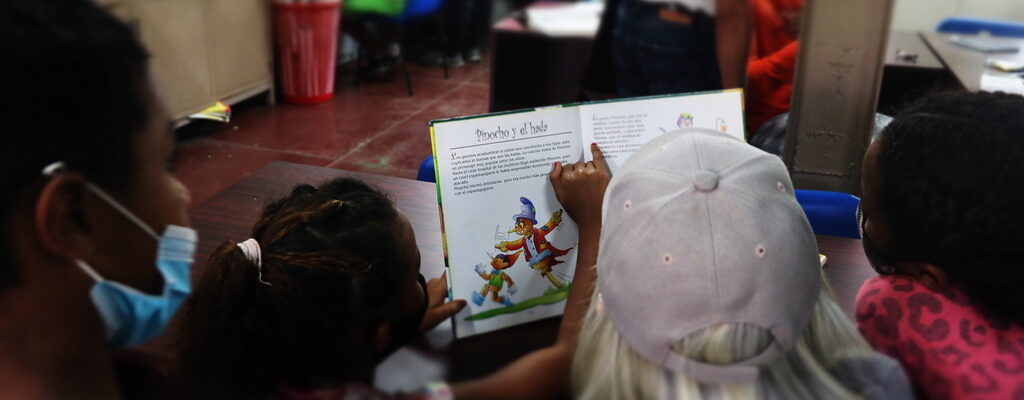Building peace, one neighborhood at a time
Venezuela | 2023 | CBPF
Venezuela, Caracas. In La Vega, a parish in western Caracas, fourth-graders play in an enclosed parking lot next to their school, with a view dominated by mountains. The playground has new swings and slides that they love to play on.
The playground in La Vega is one of five sites built as part of the “Peace takes over the neighborhood” project, implemented by Cooperazione Internationale in 2022 with their partner Caciques Alzaos, and with the support of the Venezuela Humanitarian Fund.
“This project came to us about a year ago. It really has had a great impact because La Vega was struggling with delinquency in some areas here in the parish,” explains Viani Galarraga, a community leader who has lived in the area for 16 years.
Next to the playground is another open space that is attracting community attention, where basketball and football teams can practise. “After nine years, we have a football field again. It’s so exciting, there are even kids from other neighborhoods who come to take pictures,” says Galarraga.
“Peace takes over the neighborhood” included individual and group protection support provided by psychologists, training in livelihoods and safe spaces in two communities affected by armed clashes in the Capital District.
The project reached more than 5,500 people in these two neighborhoods, 72 per cent of whom are women, children and adolescents; while 7 per cent are people with disabilities.
“Before the project started, the community was indifferent, and people would not leave their homes,” says Dayana, a resident of Cota 905. She supports pregnant and breastfeeding women from one of the rehabilitated spaces, and together with her “girls”, as she calls them, they joined the vocational training offered by this initiative.
Dayana proudly explains that she now has her certificate in making Creole sweets, which she hopes to turn into a business soon. She hopes that the mothers she brought to the training have already started their own.
Julio*, a young man from Cota 905 who took part in phone repair and hairdressing training, agrees with Dayana. He says the project had “a great impact because it was necessary. Since we had to stay at home, we weren’t doing anything else,” fearing that something might happen out on the street.
The vocational training offered Julio useful skills for his future, and also served as a stepping-stone. Today, he works with the foundation that started the project in his community. He says that he and his friends are practising what they have learned.
“A friend of mine has his own barber shop. And, as we have learned here, we help those who really need it. If someone with little money comes in and needs the service, he gives him a shave, anyway.”
“Don’t stop doing this, because you are helping a lot of people,” says Julio about the vocational training.
More information on the Venezuela Humanitarian Fund:
OCHA – POOLED FUNDS DATA HUB – By Country (unocha.org)
https://www.unocha.org/Venezuela/about-vhf
